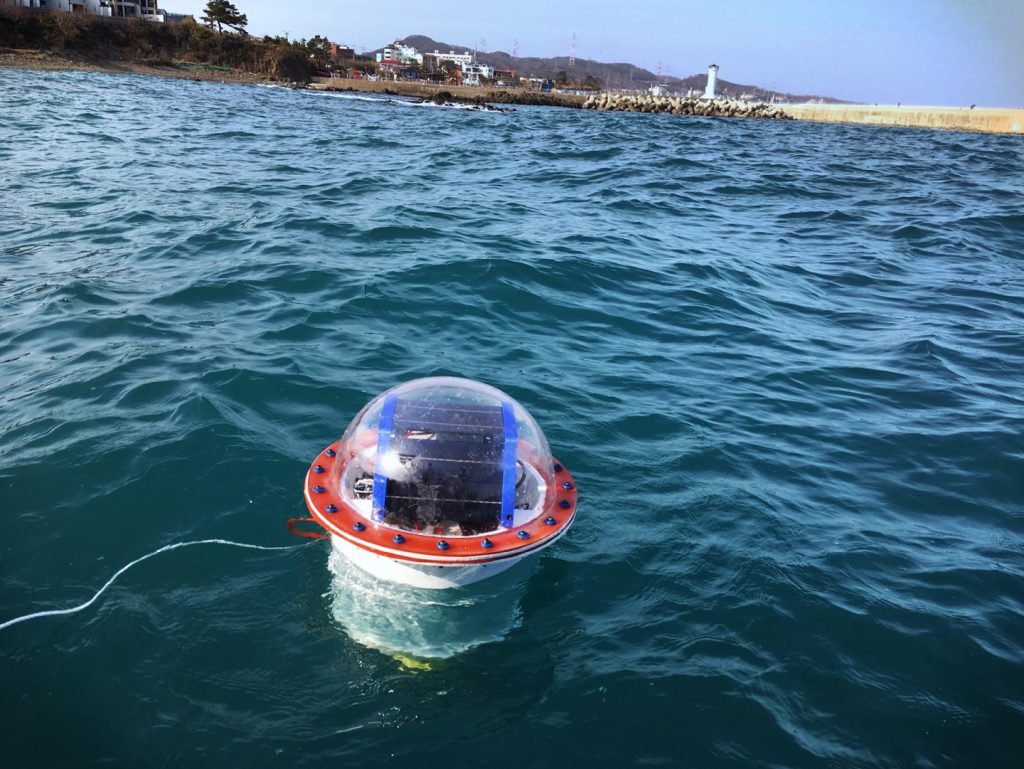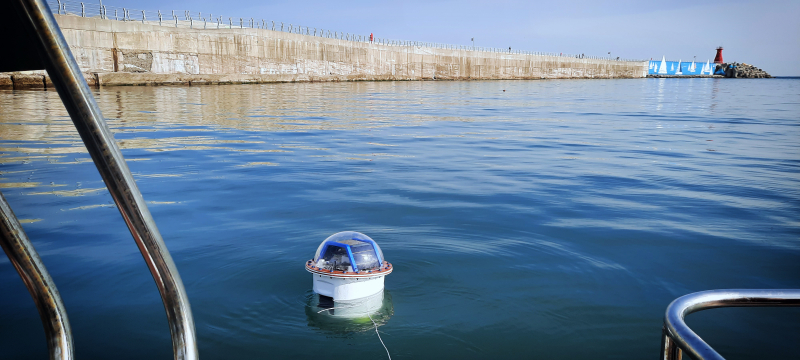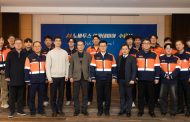Seawater battery-based smart buoys can monitor and collect over 15 different marine data, such as salinity, pH, and water temperature, as well as the location and range of fishing grounds. As it is a promising alternative for safe and scalable energy storage, we expect its further applications in the ocean sector!
The 2020 Regional Vitality Project Project, carried out among UNIST and Korea Institute of Maritime Science and Technology (KIOST) is producing concrete results. The company to benefit from this project is KLabs Inc., which is about to launch smart buoys that applied seawater batteries.
The “Seawater Battery-based Multi-Purpose Buoy” by KLabs Inc. is a device that can monitor and collect various data on the marine environment. A seawater battery that uses the naturally-abundant seawater as a sodium source to charge and discharge electricity is a key feature of this device. Besides, with 3D printing, mass-customized products are also possible without having any bearing on costs.

The new smart buoy can monitor and collect over 15 different marine data, such as salinity, pH, and water temperature, as well as the location and range of fishing grounds. l Image Credit: Seawater Resources Technology Research Center of UNIST
The demonstration of new product development is significant in that both research institutes and private companies have cooperated since the early phases of the new product development process. In addition, it is expected that both the commercialization and on-site application will be accelerated, as prototypes have been customized to meet specific business needs.
This prototype demonstration is part of the Regional Vitality Project Project, promoted by the Ministry of Trade, Industry and Energy (MOTIE). Since the selection of demonstration project to lay the groundwork for the development of ‘Maritime-Specialized Power Supply System and Maritime Equipment,” in May 2020, UNIST and KIOST have actively been working with the companies in the Ulsan region to produce and demonstrate seawater battery-based products.
Meanwhile, UNIST has been leading the seawater battery research since the development of the world’s first seawater battery in 2014. With the support from the Korea Electric Power Corporation (KEPCO), Korea East-West Power Company Ltd. (EWP), and KIOST, the center continues to push forwards commercializing the seawater batteries. Besides, with the completion of the construction of the Seawater Resources Technology Research Center of UNIST in November 2020, UNIST is taking the lead in upgrading research on seawater batteries.









![[2026 Matriculation] UNIST Welcomes Class of 2030!](https://news.unist.ac.kr/wp-content/uploads/2026/02/사진-박종래-UNIST-총장이-2026년-입학식사를-전하고-있다-2-190x122.jpg)
![[2026 UNIST Commencement] UNIST Confers Degrees to 883 Graduates](https://news.unist.ac.kr/wp-content/uploads/2026/02/사진-2026학년도-UNIST-졸업생들이-학사모를-위로-던지며-졸업을-축하하고-있다-1-800x413-190x122.jpg)




Pingback: 3D Printed Smart Buoys for Monitoring Marine Environments - 3Dnatives()